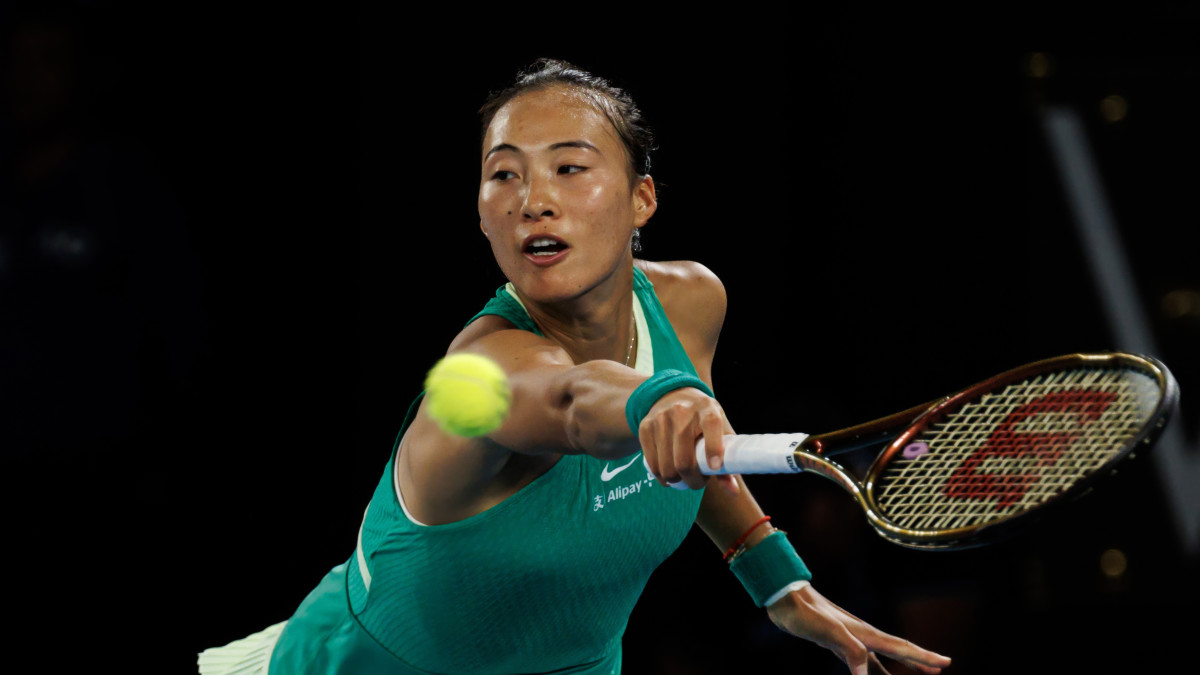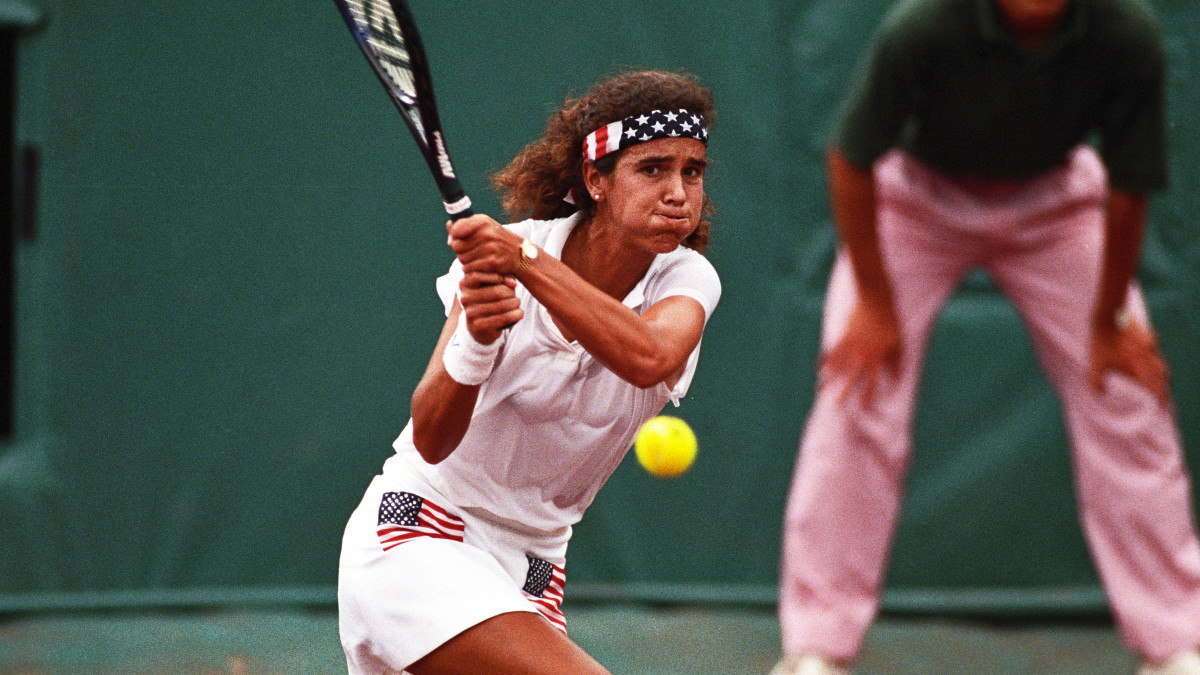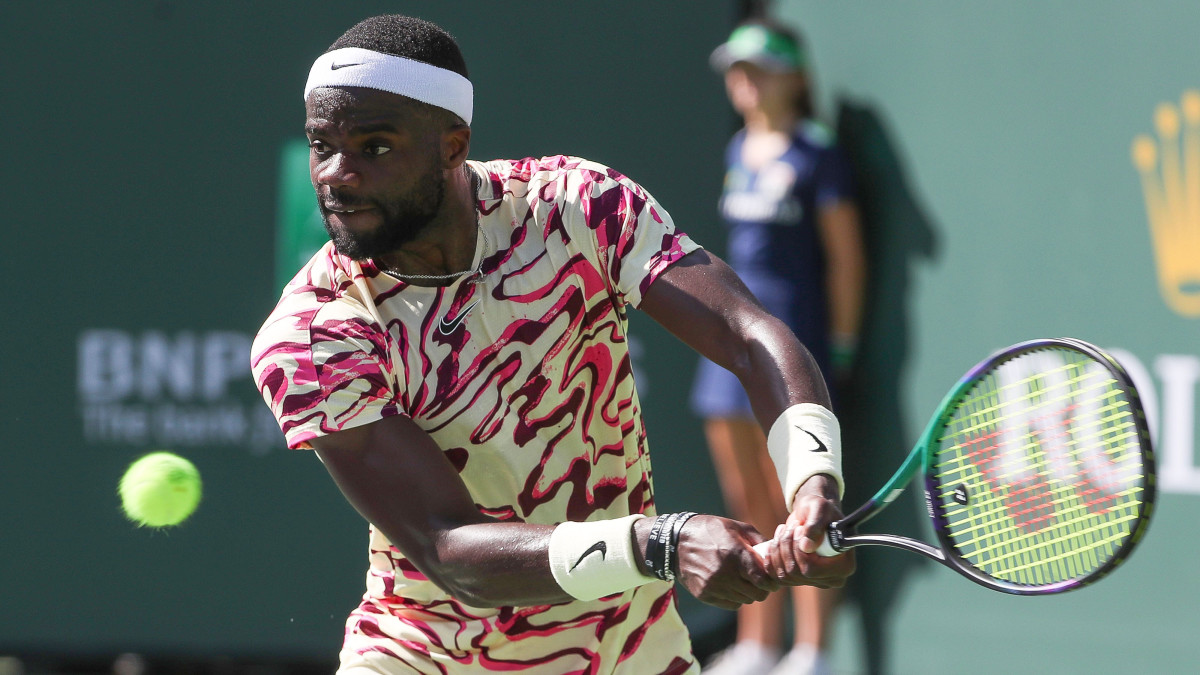Francis Tiafoe at a Turning Point, Unpacking the Player-Coach Relationship and More

Hey everyone ...
• Here’s the latest episode of Served With Andy Roddick podcast.
• Here’s an ode to Sports Illustrated from CBS Sunday Morning.
• Andres Pedroso, ladies and gentlemen. If cheating is a cancer on junior and college tennis, more of this effective treatment.
• Speaking of college tennis … were we paying enough attention to the Dartmouth case? If either a court or the National Labor Relations Board determines that college athletes are employees and colleges/conference are employers, it’s hard to see how a sport like tennis—high travel costs, low revenues—survives.
Onward, while mourning the one-handed backhand ...
Coaching a top WTA or ATP player is so different than at a tennis club where there’s limited access to the Tennis Pro. I can’t imagine having to spend so much time with one player. Even a top PGA coach like Butch Harmon typically has several players he’s coaching.
@mccreary_pierce
• Sure let’s keep going with last week’s coaching discussion, both here and on the podcast. I would submit: There are few stranger dynamics in sports than coach/player in tennis. Coaches tend to be authority figures, but here, the player is the employer, controlling the purse strings. Coaches can prepare players but don’t do much—if any—coaching during the actual competition. Though it is happily shifting a bit, the conventional thinking is that only men can replicate the power of opposing players, so the coaching pool is more male-dominated than trucking. Coaches don’t sign noncompetes, so they can leave at the whiff of a better offer, and are often recycled. There are virtually no barriers to entry or licensing exams, so the workforce ranges from former major champions to parents who may barely know what end of the racket to grip. There are virtually no home games, so players/coaches find themselves not merely in an intense relationship, but an intense peripatetic relationship.
Roddick and I were talking about this the other day. He says he would eat 250 dinners a year with members of his team. That’s a lot of chitchat. You’d better really like spending time with the person you hire. And they you. (Digression: Is it any wonder why—before we even get to predation and the power abuse—there is such a long history of player/coach sexual relationships in women’s tennis?)
Embedded in your question is an interesting idea: Who says there has to be a 1:1 ratio? It’s not for everyone, but why wouldn’t a coach try and take on multiple clients at the same time? Apart from being cost-effective for the players, they might benefit from the “me time” and the reduced intensity. There are logistical challenges—what if both players are competing simultaneously?—but that’s not insurmountable.

Do you think the distinction “X has beaten a top-five player in her career” has lost a little prestige? Not to be a [jerk], but Badosa and Anett were #2, Sakkari #3. Comparably, back in the day, Tauziat and Coetzer were #3 but the distinction seemed to mean more then.
@rafasboyfriend
• Fair point. It’s not as gallingly dirty a stat as “break points converted.” I hear a broadcaster say, “She won 6–4, 6–4 despite converting only two of 15 break points.” I want to respond, “Yeah, but she didn’t get broken. So those two break points she did convert were the difference in the match. Who cares how many times the games went to deuce, she got the job done!”
Anyway, where were we? Oh, right. Top five wins. Yes, I am totally with you. Beating Aryna Sabalenka in the U.S. Open final is a top five win. So is (or was) beating a slumping Ons Jabeur in a run-of-the-mill tournament, played on her worst surface. Big difference.
Here’s a place where tennis could really improve: norming stats for the quality of opponent. At some level, this is what the UTR does. If the tours don’t want to adopt the system, fine. But these metrics should be available to all of us. (Maybe tennis treasure Jeff Sackmann wants to tackle?)
What do I mean? Two examples:
- I saw a recent note “Kei Nishikori holds the record for the highest win percentage in matches extending to five sets, with a record of 27–7 and a win percentage of 79.4%.” Awesome. But whom is he beating in these five-setters? Often players ranked far lower, whom he should have beaten more handily. Roger Federer had a worse record in five-setters. Except that he was losing to Novak Djokovic in the Wimbledon final. (Or Djokovic was losing to Carlos Alcaraz in the Wimbledon final. Or Rafael Nadal was losing to Federer in the Aussie Open final.) Nishikori was outlasting a qualifier whom, by rankings, he should have dusted off 6–3, 6–3, 6–3.
- Likewise, when a player advances to a major final without facing a seed (most recently Qinwen Zheng in Melbourne) that’s awesome. You can only beat the six players the draw serves up. But empirically there ought to be a way to reflect difficult paths versus easier ones.
• Baseball does a good job connoting “leverage” situations. A base hit in the first inning is worth less than a base hit with the score tied in the ninth inning. Tennis ought to have a more advanced stat here, too.
Jon, I know you discussed the Best Active Player Never to Win a Major. (I don’t agree with you, but inspired choice with Muchova.) Who would you say wins this title for all-time?
Douglas T.
• Thanks. Before answering: the obligatory disclaimer that this category is a compliment, not a burn. “You are awesome and major-capable,” not “you came close, but couldn’t close.” With that out of the way … a lot of choices here. I think I would go with Mary Joe Fernández and Marcelo Rios. Ladies first. MJF is too modest to talk about it on air, but she was a hell of a player. She reached nine major semis and three major finals. In one of them, she was up a set on Steffi Graf.

As for Rios: five masters titles, the No. 1 ranking, a major final. Talent to burn. The guy was (charitably) polarizing. It is the rare player who has his own Wikipedia heading “controversies.” Even today, he, well, yeah … as such he never got his due. Just an exquisite player and athlete and sui generis lefty style. All the while standing (again, charitably) 5'9".
I resist going here, but here it goes: Rios reached the final of the 1998 Australian Open. The player who beat him tested positive for nandrolone, a potent steroid, a few months later. Discuss: If a popular player (from a big market, not Chile) lost a major final to an opponent popped for steroids a few months later, would we not be more inclined to revise history?
Jon, I wanted to ask you about Frances Tiafoe. Buy/sell/hold?
Andy, NYC
• I am answering this a day after Tiafoe (though seeded higher) lost to Tommy Paul 6–2, 6–2. Since reaching the U.S. Open quarters (and losing a winnable match against Ben Shelton) he is playing sub-.500 tennis. And he parted ways with longtime coach Wayne Ferreira, with whom he reached the top 10 last year. Clearly, this is a player in a slump. But often that’s a good time to buy.
The knocks on Tiafoe tend to come from two corners. 1) His forehand is hitchy. 2) He should spend less time enjoying the courtside seats and the concert and the perks of fame, and more on the practice court. I’m not sure I put much stock in either. His forehand is his forehand. He’s unlikely to retool it at age 26. And while it might look unconventional, one can’t really argue it’s ineffective. And athletes are not robots. Sometimes a night spent watching an NBA game or attending a fashion show is a necessary pressure valve.
A bigger issue: Tiafoe’s great strength can also be a liability. He is an emotional player, who alchemizes energy and applies it to his tennis. When it’s going well and it’s the middle weekend at the U.S. Open and he’s fighting with Nadal and the crowd is engaged, he is at his best. When it’s a desultory session or he is losing his way or sensing impatience from the fans, it can tend to bring him down or, worse, make him alter his risk threshold and “go for too much,” as the cliché-prone would say.
He’s 26. He’s athletic. He’s easy to root for. He’s in the middle of a swoon. He’s adjusting to a new coaching situation. I wouldn’t panic-sell.

Hi Jon,
Long-time reader. Good luck with SI financial troubles!
Regarding sportswashing. Many (most) comments make it sound awful.
Here is an alternate take (for which I may or may not agree in part or in whole).
- first, someone in charge needs to recognize and acknowledge that they did something wrong in the first place
- then, they need to find a way to atone
- part of that process is to change the underlying problems (women in Saudi Arabia are being granted more rights than before, for example; the economy is being diversified away from a singular reliance on oil; new careers are opening up for young people that did not exist before, including careers in hospitality, sports, entertainment).
- part of the process is to rehabilitate the image
- sportswashing is part of a modernization process, not merely an attempt to disguise problematic processes, but also a way to expand economic opportunities and help lay a foundation for new ideas to spread in an acceptable, controlled manner.
Thanks for reading this far.
Regards,
Joe from Branford, CT
• A lot of good points here, at least as I read it. I agree that we ought to be open to countries trying to modernize and rehabilitate. But it cannot simply be modernizing and rehabilitating an image. There must be rehabilitation of policy and culture—with demonstrable goals and successes.
And yes, some level of contrition would go a long way.
For the record, here’s the declassified CIA report on the Jamal Khashoggi killing. Not exactly ambivalent or equivocal. I asked the Saudi sports minister—the man posing with Nadal in so many recent photos—about it for 60 Minutes. Here’s the exchange:
Jon Wertheim: This declassified CIA report that says that Mohammed bin Salman ordered and approved the killing, you’re denying that?
Prince Abdul Aziz: Yes, because I know that he did not order the killing of Jamal Khashoggi. And I am sure that the steps that we’ve done to make sure that whoever did that come to—comes to justice have—have happened. And the perpetrators that actually took that action have come to justice. And we make sure that these things don’t happen. Because we don’t—we don’t accept that at all. Any murder we don’t accept.
Shots
• Austin resident Sergio Garcia is among the special guests who will take part in Sunday Funday alongside WTA stars Victoria Azarenka, Danielle Collins and Sloane Stephens as part of an exciting Opening Weekend presented by Artesian at Bee Cave and Loopy Grip at the ATX Open Feb. 24 and 25. The Opening Weekend festivities and community activities take place around the qualifying matches for the Hologic WTA Tour 250 tournament. Admission to Westwood Country Club is free on Saturday and Sunday, but pre-registration is required at ATXOpen.com.
• Netflix announced today that The Netflix Slam will stream live globally on Sunday, March 3 at 12:30 p.m. PT/9:30 p.m. CET at the Michelob ULTRA Arena at Mandalay Bay Resort and Casino, where 22-time Grand Slam men’s singles title champion Nadal will face off against World No. 2 and fellow Spaniard Alcaraz. The Netflix Slam, hosted by MGM Resorts International and produced by Full Day Productions, will be available in both Spanish and English. The live global tennis event will be sponsored by renowned skincare brand La Roche-Posay.
• Joining The Slam for on and off court commentary and play-by-play analysis are tennis greats Roddick, Fernández, Jim Courier and Patrick McEnroe, as well as tennis analyst Prakash Amritraj and host Kay Adams, with a special appearance by hometown legend Andre Agassi. For Spanish markets, tennis favorites Feliciano López and David Ferrer will be calling the shots.
